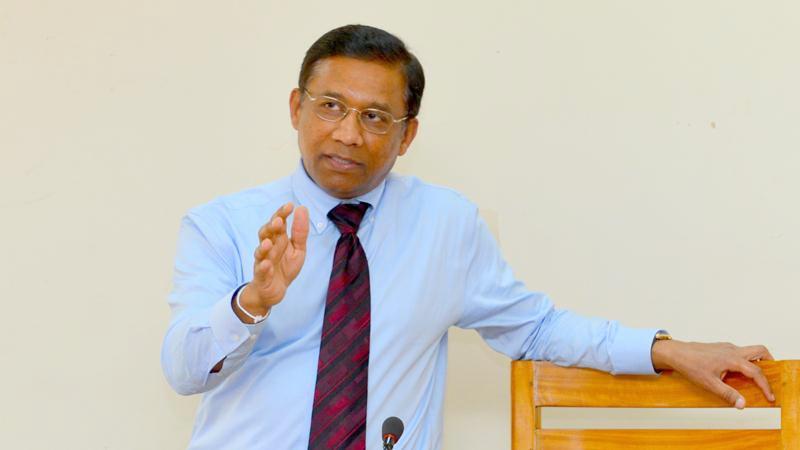
Sri Lanka has the capacity and willingness to service international debts regardless of the political situation the country faces. The country will have to service foreign debt amounting to US $ 5 billion in the years to come, Secretary General and Chief Economist, National Economic Council (NEC), Prof. Lalith Samarakoon said at a high level discussion on ‘Sri Lanka’s Economic Challenges in the Year 2019’ in Colombo last week.
The country’s debt composition is: International debts US$ 30 billion and $ 32 billion in domestic debts.
“We have funds and provisions to pay. There is no alarming situation where the country will not be able to repay its foreign debts. However, Sri Lanka will have to pay a higher risk premium given the political uncertainty in the country. The bonds are traded in the US market at a 5.5 percent premium,” he said.
The Sri Lankan Rupee has depreciated by 15 percent so far this year. The currency depreciation is due to slow growth, budget deficit and current account deficit. Slow growth has become a global phenomenal and this does not augur well for the currency, he said.
However, Prof. Samarakoon said that there are structural problems and we need to resolve these.
“With economic programs in place which are growth oriented, we could overcome these issues. Sri Lanka needs to grow at a much higher rate than 4-5 percent in going forward. The world entering a phase of slower growth will force the country to tighten the monetary policy,” he said. Explaining the economic challenges the country faced at present, Prof. Samarakoon said that external conditions such as slower growth, volatility, high interest rates, Bretexit and Italian story has impacted Sri Lanka.
The trade war between the USA and China due to tariff has resulted in losses to both countries. The USA has loss 0.9 percent while China has 1.6 percent negative impact. In value terms this is US$ 250 billion and $ 110 billion respectively. When the government spends more money than it earns there creates a deficit and we need borrowings to bridge this gap. Borrowing is not sustainable in the long run. The country has ended up with large external debt stock, Senior Deputy Governor, Central Bank of Sri Lanka, Dr. Nandala Weerasinghe said. As Sri Lanka reached the middle income stage, we have to borrow on the market interest rates. This is not an easy situation. Therefore, maintaining fiscal balance is necessary, he said. The Government’s policy is to bring in fiscal consolidation. We have to reach high growth rate. The real interest rates are too high. The country needs to expand foreign exchange earning sectors such as tourism and ports, he said.
Over 70 percent of the economic activities generate domestic earnings. This should be changed. We need to have structural reforms such as labour reforms. The global integration and better market access is necessary in going forward, he said. The main objective of the Central Bank is to maintain price stability. For this two instruments are being used, namely interest rates and exchange rates.
